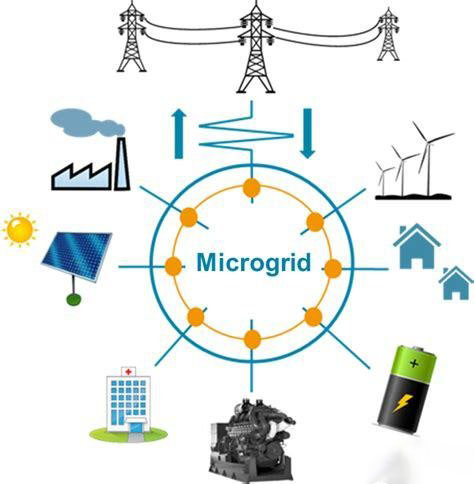Sep 07, 2020
Micro-Grid refers to a small power generation and distribution system composed of distributed power sources, energy storage devices, energy conversion devices, loads, monitoring and protection devices, etc.
The power sources in the microgrid are mostly distributed power sources with small capacity, that is, small units with power electronic interfaces, including micro gas turbines, fuel cells, photovoltaic cells, and small wind turbines.
Including batteries, thermal energy storage, etc., the excess electrical energy is stored in electricity or other forms of energy, and used when needed, so that the microgrid can achieve internal power supply and demand balance and maintain voltage and frequency stability.
Load refers to the electricity capacity of the microgrid. If you are building a microgrid for a mobile phone, the load may be small. But if it is to build a microgrid for a hospital, the load becomes larger, and the corresponding energy storage device may also be larger.

There are two main types of microgrids, one is independent and the other is grid-connected.
The independent micro-grid operates independently and is not connected to the large grid to complete internal power generation and power supply balance.
The grid-connected microgrid is connected to the external power grid to operate. When the microgrid and the large power grid are connected together, it will automatically turn off the circuit breaker to allow the large power grid to function. At the same time, its own power generation system will start the grid-connected power generation mode to exchange power with the main grid power distribution system.
Once the large power grid fails or the power quality cannot meet the demand, the microgrid will quickly disconnect from the large power grid and operate independently. This switch is completed in a flash, with a smooth transition without a trace. At this time, the microgrid enters an island mode and generates electricity entirely on its own.
First of all, the construction of microgrids in local areas is relatively low cost. For example: on a small island far away from the mainland, power is supplied through a large power grid. Submarine cables and towers have to be laid, which is time-consuming and labor-intensive. The cost of the entire microgrid system is lower than that of a large power grid and is more economical. .
The microgrid is very flexible and can realize the local consumption of new energy. For example, remote areas are rich in wind and solar resources. The microgrid uses these new energy sources to generate electricity and realizes local consumption for local residents. The extra electricity can be stored for later use.
The above information is provided by photovoltaic system design company.
How Do Solar Panels Help The Environment?
Nov. 23, 2021
Follow Us
Navigation